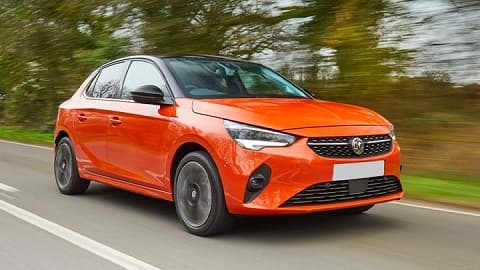What you need to know about clean air zones
Is your fleet ready for more cities introducing Ultra Low Emissions Zones (ULEZ), Zero Emission Zones (ZEZ) or Clean Air Zones (CAZ)? London introduced their Ultra Low Emissions Zone (ULEZ) in April 2019 covering central London this year and has plans for extending across Greater London from 25 October 2021.
With many of us choosing to commute, travel for meetings and industry events all over the UK, are our businesses prepared for the numerous new CAZ zones that are due to be introduced, and the costs that could be involved?
By having a look at all the information out there now, businesses running fleets can prepare to manage any potential unexpected issues and plan on how best to tackle them.
Whether that is looking at the replacement of existing older fleet vehicles, supplementing areas of their fleets with CO2 efficient, hybrid, or electric hire vehicles or looking to making the switching completely to electric vehicles (EV’s).
What is a Clean Air Zone (CAZ)?
The Government has a long-term strategy to improve air quality across the UK by discouraging the use of older, more polluting vehicles. They also have a short-term goal to reduce the number of areas in the UK where air pollution breaches legal limits. Following their mission to ensure all new cars in the UK will be “effectively zero emission” by 2040, CAZs are also designed to encourage people to drive less polluting vehicles, including electric and more modern petrol and diesels.
Drivers of the most polluting vehicles can be charged up to £100 a day to enter areas where councils believe the air to be toxic; this is often in town and city centres.
What vehicles will be affected by the Clean Air Zones?
Local authorities can decide what level of restriction to apply, and charging is not compulsory. Local authorities will only be able to set charges at levels designed to reduce pollution, not to raise additional revenue beyond recovering the costs of the scheme.
Buses, coaches and HGVs that meet Euro 6 emissions standards will be exempt, as will cars, vans, and taxis that meet Euro 6 (diesel) or Euro 4 (petrol) emissions standards. Any ultra-low emission vehicles with a significant zero-emission range will also be exempt.
Where in the UK will be impacted?
The Government has mandated five cities across the UK to introduce Clean Air Zones; these are Birmingham, Leeds, Nottingham, Derby, and Southampton. 28 local authorities were also named where it is expected pollution levels will reach illegal levels by 2021. These named cities must all carry out a feasibility study to determine whether a Clean Air Zone is required.
London
The capital already had a non-charging low emission zone covering most of Greater London, but after 8th April 2019, tighter emission standards were introduced under the new Ultra Low Emission Zone (ULEZ). This is set to be expanded to cover Greater London from 25th October 2021.
Charges include:
- Daily fee of £12.50 for private cars, taxis, vans, motorcycles, and mopeds that fail to meet the required emissions standards.
- Daily fee of £100 for buses, coaches, and HGVs that fail to meet the required emissions standards
Leeds
The CAZ introduction in Leeds has been delayed as it was originally due to be introduced from 6th January 2020 covering most of the city centre. The zone will include roads within the boundary of the A61 and A63, near Leeds city centre, and will be policed with automatic number plate recognition cameras.
Charges include:
- Private car drivers will not be charged.
- Daily fee of £50 for buses and HGVs that fail to meet the required emissions standards.
- Taxis and private hire vehicles will have to pay a daily fee of £12.50 to enter the zone.
Birmingham
The zone in Birmingham was originally expected in January 2020, however this is now expected to be delayed until July 2020. The restrictions will cover all roads within the A4540 Middleway ring road.
Charges include:
- Non-compliant cars, taxis, and vans will pay £8 per day.
- HGVs, coaches and buses will pay £50 per day.
Bath
The CAZ is expected by the end of 2020 and the current proposals would see a Class B vehicle (trucks, buses, coaches, and taxis) that fails to meet the required emissions standards being charged the following:
- £9 for taxis
- £100 for buses, coaches and HGVs
- Free for private cars, vans, motorcycles, and mopeds
Greater Manchester
The zone was proposed for 2021 and would cover all 10 local authority areas in Greater Manchester. They plan to introduce charges for the most polluting vehicles (excluding private cars).
Charges include:
- £100 for HGVs, buses and coaches from 2021
- £7.50 for taxis and private hire vehicles from 2021
- £7.50 for vans and minibuses from 2023
Glasgow
Glasgow introduced its own scheme on 31st December 2018, and stated that one in five buses entering the city centre must meet new emission standards. It will also apply to lorries, vans and private cars from December 2022. The council says emission standards for motorcycles and mopeds are still being considered and the charges that will be introduced are still to be confirmed.
Other UK cities with unconfirmed plans:
Derby
A CAZ is not expected in Derby, but the council is proposing traffic management measures to address air quality issues without any charges for road users instead. Other plans suggested include a new scrappage scheme, a number of new EV charge points across the city, and grants to incentivise businesses to switch to ultra-low emissions vehicles.
Sheffield
No decisions have been made, but proposals outline it will cover the inner ring-road and is planned for early 2021.
Nottingham
Nottingham City Council has cancelled its plans to introduce a clean air zone, and the government approved the city’s plan to tackle air pollution without a CAZ. Plans include retrofitting 171 buses with emission reducing technology, supporting an increase in low emission taxis with licencing discounts and replacing elements of its own council fleet with EVs.
Southampton
Southampton introduced a Clean Air Zone on a non-charging basis in 2017.
Bristol
A CAZ is expected in 2021, with Bristol City Council proposing a diesel vehicle ban combined with a clean air zone charge.







